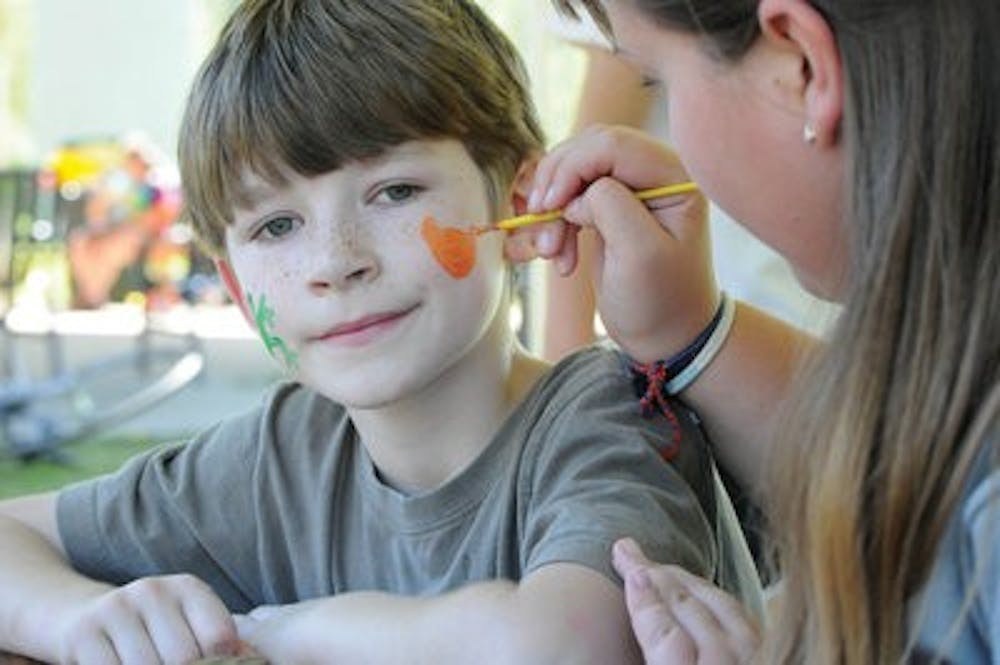Five hundred dollars could pay for an iPad, a cruise, a month's rent--or a slave's freedom.
The Auburn chapter of the International Justice Mission aims to raise money to free victims of human trafficking.
The chapter contributes money to the international organization which buys the freedom of those who have been trafficked.
The $500 pays for the IJM to free a slave and provide him or her with an aftercare program.
At Sunday's Freedom Fest at Town Creek Park, the IJM raised $600 through donations and registration for the Walk to Freedom around the park.
Of the 60 people who attended, 35 participated in the walk.
"They literally go in and get these girls out of brothels," said Grace Ann Hollis, IJM president and sophomore in accounting. "A lot of times the government is actually working with the pimps and stuff."
When trafficked victims have been rescued, the aftercare program helps them get back on their feet.
"A lot of them don't have anything," said Morgan Bethea, junior in public relations and IJM director of publicity.
"If they've been kidnapped or taken from their homes, they have to start over."
Of the traffickers themselves, 42 percent are women, according to the IJM.
"What makes it all the more sick to me is that a woman will come into a village and talk to a lot of poor people about opportunities for their girls to become secretaries and executive assistants and professionals, and then they just capture them and take everything from them," said Bill Deutsch, research fellow and chapter adviser. "They run them through these brothels. They have a global distribution system."
A pimp can make $250,000 a year from exploiting one girl, making human trafficking more profitable than drug trafficking.
Deutsch has made about 60 international trips to 25 countries.
"I think there's a general sense among our students, faculty and staff on campus that this is an issue, but I think as terrible as it is, it's something that's very easy to sweep under the rug," Deutsch said.
"It's just appalling how much of it is either based in or active here in the U.S. It's not just a Cambodia thing or a Thailand thing or Ghana thing. It's insidious. It's everywhere."
Human trafficking hits close to home, as the Atlanta airport is the most heavily trafficked in the U.S., said Hannah Flayhart, sophomore in human development and family studies.
In a period of one month in Atlanta alone, there are 7,200 instances of sexual exploitation of a child, according to the IJM.
In many instances, men fly to Atlanta seeking a sexual encounter with a child, make a purchase and then fly home to rejoin their families.
In addition to sex trafficking, the IJM fights forced labor, especially child labor.
"There's kids getting made to work 14, 16 hours a day in brick factories in India," Deutsch said. "Or made to put soles on Nike shoes with benzene glues in a room you can't even stand up in. There's just a lot of inhumanity."
Do you like this story? The Plainsman doesn't accept money from tuition or student fees, and we don't charge a subscription fee. But you can donate to support The Plainsman.





